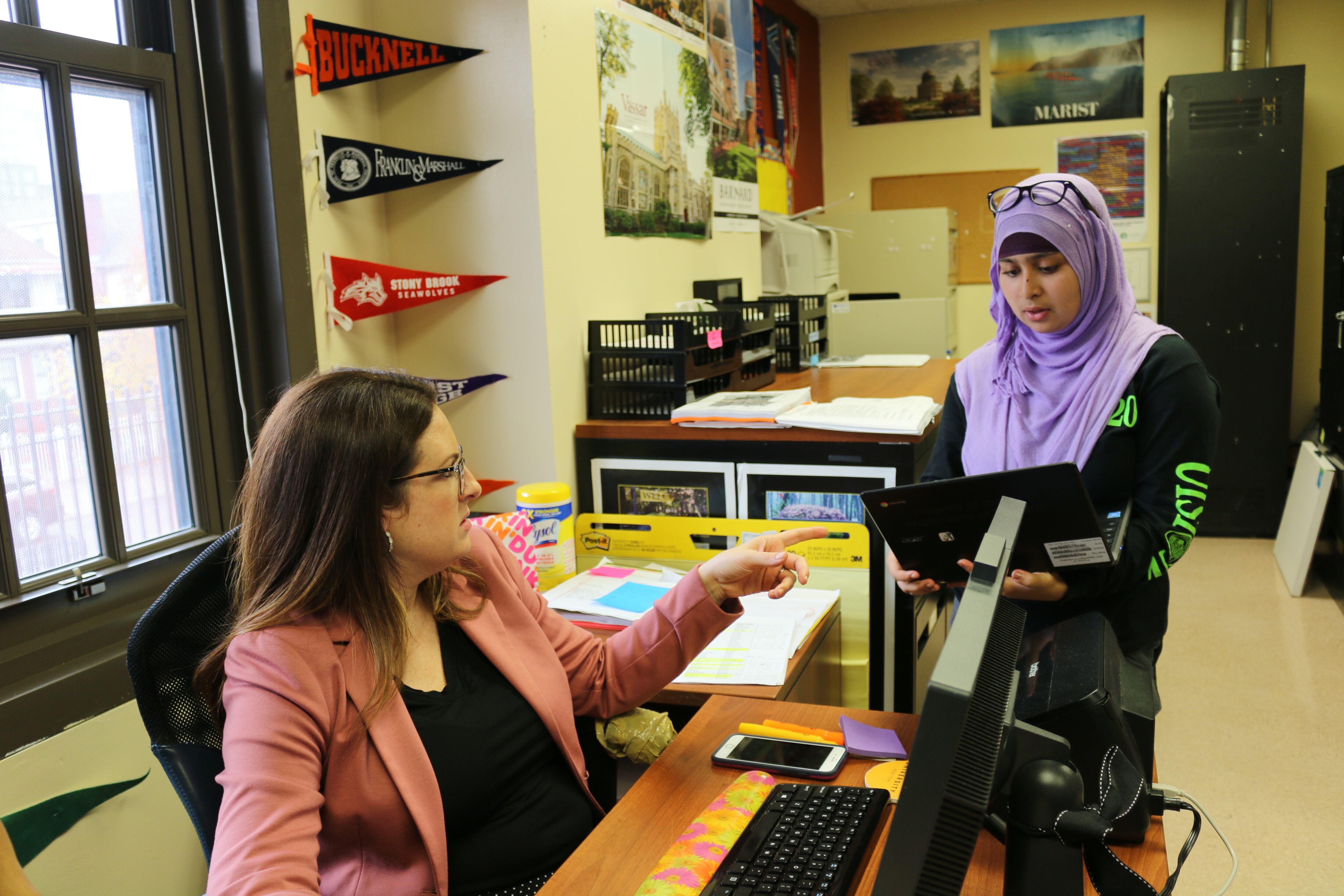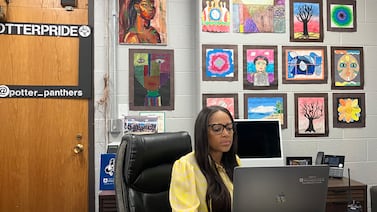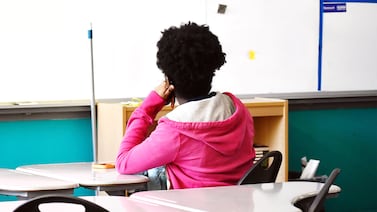As many students continue to experience technical glitches preventing them from submitting their application for federal financial aid online, there is one potential workaround: an old-fashioned paper form.
But college access organizations and financial aid experts caution that for many students, this may not be the best route.
Here’s what you should know before you fill out the paper version of the Free Application for Federal Student Aid, or FAFSA:
What is the paper FAFSA form? Where can I find it?
Federal officials have long released a paper version of the FAFSA, though only a small share of students submitted a hard copy in recent years, which is why you may not have heard about it before now.
You can find a paper copy of the FAFSA in English here, and in Spanish here.
Why might I consider filling out a paper FAFSA form?
Right now, parents who don’t have a Social Security number cannot add their information to their child’s online application for college financial aid, and in some cases may not be able to obtain login credentials to access the online system.
That’s because of a technical glitch federal officials say they are working to fix. A senior official for the U.S. Department of Education told reporters on Monday that officials are meeting daily to try to resolve the issue, but right now there is no timeline. This problem has prevented thousands of students whose parents are immigrants from completing the FAFSA.
The paper form allows parents and spouses without Social Security numbers to write in all zeroes, as they could in past years online, and to provide an Individual Taxpayer Identification Number, or ITIN, if they have one. Parents can fill out the paper form without going through the identity-verification process blocking some from obtaining login credentials online.
If your college, state, or scholarship organization has a hard deadline to submit the FAFSA, and that’s coming up, you may want to consider filling out the paper form as a way to meet that deadline. Once you mail in the paper form, the day the application is received in the mail will be marked as your submission date.
Should I wait for the online form to be fixed instead of filling out the paper form?
If you don’t have a pressing FAFSA submission deadline, it may be a better option to wait for the online form to be fixed, said MorraLee Keller, a senior director at the nonprofit National College Attainment Network.
That’s because paper forms will be processed after online applications, so you risk putting yourself farther back in the processing line if you go the paper route. That matters because some colleges award aid on a first-come, first-served basis.
Federal officials recently announced that they won’t be sharing students’ information from online applications with colleges until March. Already, because of delays in the FAFSA process, colleges have less time to put together financial aid packages and students will have less time to review them and make decisions. If you fill out a paper form, a college may not review your financial aid application until April.
The paper form also leaves more room for mistakes, as the instructions can be more complicated to follow. If you’re considering filling out the paper form, reach out to a college counselor at your school or a college access organization for help, especially if you’ve never filled out a FAFSA before.
“It’s all those families out there who don’t have someone guiding them that there would be potential that they could make mistakes on the paper form, even though there’s pages and pages of instructions,” Keller said. “There’s a lot more guidance in the online form.”
If I fill out the paper form, can I still fill out the online form?
Yes. If you mail in a paper FAFSA and then fill out the online version, the federal government will rely on the online version and treat the paper copy like a duplicate submission.
And if you make a mistake on your FAFSA, don’t worry: There is a process to submit corrections, too.
“We just want to encourage families to stay the course,” Keller said. “Don’t give up on the idea of higher education or going to college because the form is a stumbling block right now.”
Kalyn Belsha is a senior national education reporter based in Chicago. Contact her at kbelsha@chalkbeat.org.







